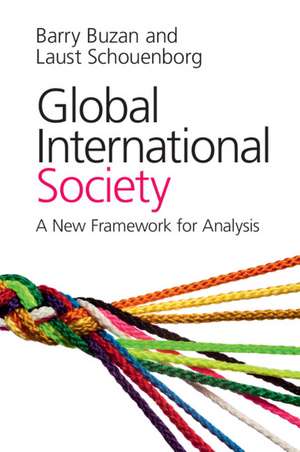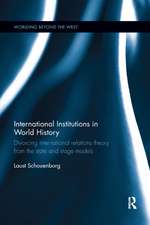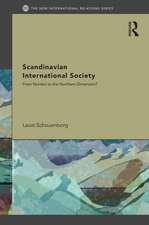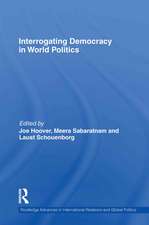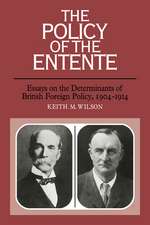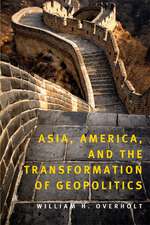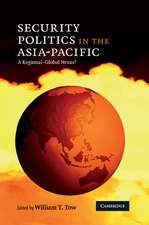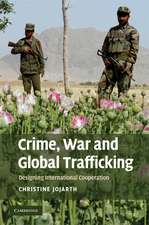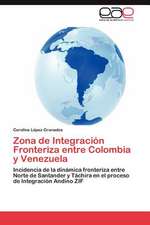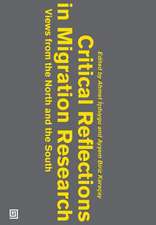Global International Society: A New Framework for Analysis
Autor Barry Buzan, Laust Schouenborgen Limba Engleză Paperback – 22 aug 2018
| Toate formatele și edițiile | Preț | Express |
|---|---|---|
| Paperback (1) | 223.67 lei 22-36 zile | |
| Cambridge University Press – 22 aug 2018 | 223.67 lei 22-36 zile | |
| Hardback (1) | 554.83 lei 43-57 zile | |
| Cambridge University Press – 22 aug 2018 | 554.83 lei 43-57 zile |
Preț: 223.67 lei
Nou
Puncte Express: 336
Preț estimativ în valută:
42.80€ • 44.81$ • 35.41£
42.80€ • 44.81$ • 35.41£
Carte disponibilă
Livrare economică 17-31 martie
Preluare comenzi: 021 569.72.76
Specificații
ISBN-13: 9781108448352
ISBN-10: 1108448356
Pagini: 286
Dimensiuni: 152 x 228 x 15 mm
Greutate: 0.4 kg
Editura: Cambridge University Press
Colecția Cambridge University Press
Locul publicării:Cambridge, United Kingdom
ISBN-10: 1108448356
Pagini: 286
Dimensiuni: 152 x 228 x 15 mm
Greutate: 0.4 kg
Editura: Cambridge University Press
Colecția Cambridge University Press
Locul publicării:Cambridge, United Kingdom
Cuprins
1. Theorising international society; 2. The making of contemporary global international society: how do international societies grow/expand?; 3. The 'like-units' model; 4. The regions/subglobal model; 5. The hierarchy/privilege model; 6. The functional differentiation model; 7. Aggregating the models: the complex differentiation of contemporary global international society; Conclusions.
Recenzii
'Buzan and Schouenborg have over-reached the Westernisation story with four pluralistic models of the expansion of international society, enriching the English School's theoretical corpus. Building on them, they theorise the differentiations of state type and of geography, status and function that have produced the basic structures of today's global international society. A must-read for anyone interested in the post-colonial condition.' Cornelia Navari, University of Buckingham
'Buzan and Schouenborg have succeeded in dealing with one of the most straightforward, yet most difficult, questions for international relations theorists in general and English School thinkers in particular: what is global international society? The impressive historical, analytical, and theoretical rigour of this volume will be a reference point for all those interested in how norms, institutions, and the overall social structure of world politics originated and evolved in the past, are strengthening or weakening in the present, and may change in the future.' Filippo Costa Buranelli, University of St Andrews
'Buzan and Schouenborg have succeeded in dealing with one of the most straightforward, yet most difficult, questions for international relations theorists in general and English School thinkers in particular: what is global international society? The impressive historical, analytical, and theoretical rigour of this volume will be a reference point for all those interested in how norms, institutions, and the overall social structure of world politics originated and evolved in the past, are strengthening or weakening in the present, and may change in the future.' Filippo Costa Buranelli, University of St Andrews
Notă biografică
Descriere
A new and systematic view of how global international society came into being and acquired its current structure and dynamics.
